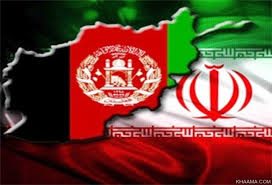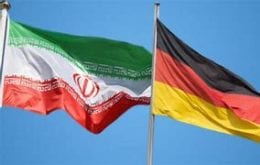RFL/RE – “The entry of Afghans into this store is forbidden because I do not like them.”
That was the sign on the window of a retail store in the Iranian city of Nazarabad, located in the western province of Alborz.
Video footage of the racist shop sign first appeared in May, prompting widespread outrage among Afghans and Iranians on social media.
The estimated 1 million Afghan migrants and refugees who reside in Iran have long complained of mistreatment and discrimination. Many Afghans work in menial jobs and are blamed for crime and drug trafficking.
Prosecutor Ruhollah Ahmadi said on June 8 that the shop owner, whose name was not revealed, was arrested and expressed his “regret and remorse” for “his ugly act,” according to Iran’s official news agency IRNA.
Ahmadi said the shop owner was given a suspended jail sentence and ordered to issue a formal apology to the Afghan community, offer discounts to Afghan nationals for three months, and conduct research on the history of the “friendship” between the two neighbors who have deep cultural, linguistic, and historical ties.
Ebrahim Noruzifar, the head of a media organization in Alborz run by the Basij paramilitary force, said the presence of Afghans alongside Iranians “on the battlefield” in Syria against the Islamic State (IS) extremist group was an “expression of the fraternity” between the two peoples.

Iran’s powerful Islamic Revolutionary Guards Corps (IRGC) has recruited thousands of undocumented Afghans to fight for pro-Iranian militias in Syria since 2013. International human rights groups have said Afghans are offered financial rewards and Iranian residency permits to join the fight in Syria.
Series Of Controversies
The shop-sign incident is the latest controversy that has angered the Afghan community in Iran.
An Iranian television series, titled Forbidden, prompted widespread anger on social media in March, with some alleging it was racist and fed stereotypes of Afghan migrants as poor, uneducated, and inferior./**/ /**/ /**/ SEE ALSO:
Afghans Angry Over ‘Racist’ Iranian TV Series
In one episode of the series, the heroine is forced to marry an Afghan migrant — depicted as unattractive and submissive and whose shaved head is broken up by large bald patches — as punishment for her disobedience.
In 2016, a show titled Outbreak angered critics who said it promoted hatred against Afghan refugees. The show featured a story line about an Afghan man carrying a biologically engineered virus who is sent to Iran by the United States, Tehran’s arch enemy.
More recently, a viral video appearing to show an Iranian police officer slapping, insulting, and humiliating a group of Afghan migrants was met with a strong reaction in Kabul in December.
In 2012, Afghans living in the Iranian city of Isfahan were banned from a mountainous park during Norouz festivities, with city officials saying Afghans were banned from Sofeh Park in order “to ensure citizens’ welfare.” The decision was quickly condemned on Facebook and other social-media sites by some Iranians.
History Of Discrimination
Human Rights Watch has documented violations against Afghan refugees and migrants in Iran, including physical abuse, detention in unsanitary and inhumane conditions, forced payment for transportation and accommodation in deportation camps, forced labor, and forced separation of families.
The United Nations estimates the number of Afghan citizens in Iran at just under 1 million, many of whom claim to face violence and injustice. Tehran puts the figure of documented and undocumented Afghan refugees and migrants at closer to 3 million.
For decades, Afghans have turned to Iran to earn a living, despite widespread reports of migrants facing violence and injustice there.
Tehran has expelled many Afghans, who are often blamed for insecurity and unemployment in Iran, and periodically threatens those who remain with mass expulsion.
Many of them moved to Iran following the Soviet occupation of Afghanistan and the civil war that followed the Soviet withdrawal. Others sought refuge in Iran after the Taliban took power in Afghanistan. After the U.S.-led invasion in 2001, some Afghans left for Iran in search of jobs, although hundreds of thousands of Afghans returned last year amid a crippling economic crisis in Iran.
Many have taken on menial work that is of little interest to Iranians.
In 2015, Iranian Supreme Leader Ayatollah Ali Khamenei issued a decree allowing all Afghan children to be allowed an education. But Afghans are still denied basic services, including access to health care, jobs, and even housing.
 Shabtabnews In this dark night, I have lost my way – Arise from a corner, oh you the star of guidance.
Shabtabnews In this dark night, I have lost my way – Arise from a corner, oh you the star of guidance.



